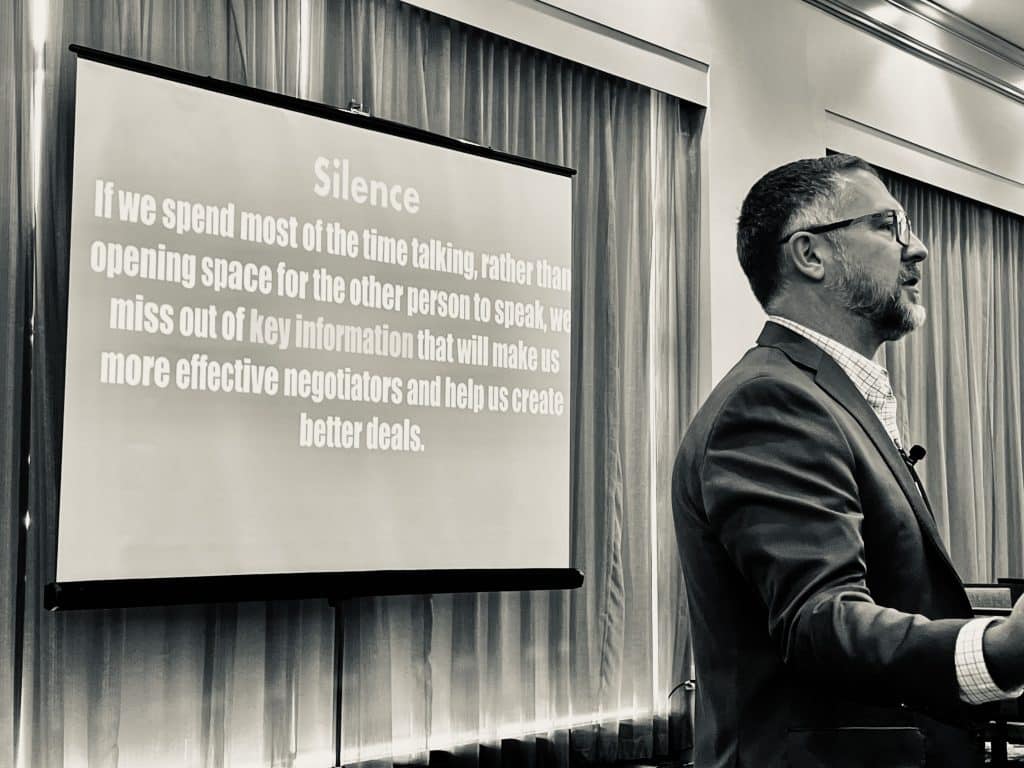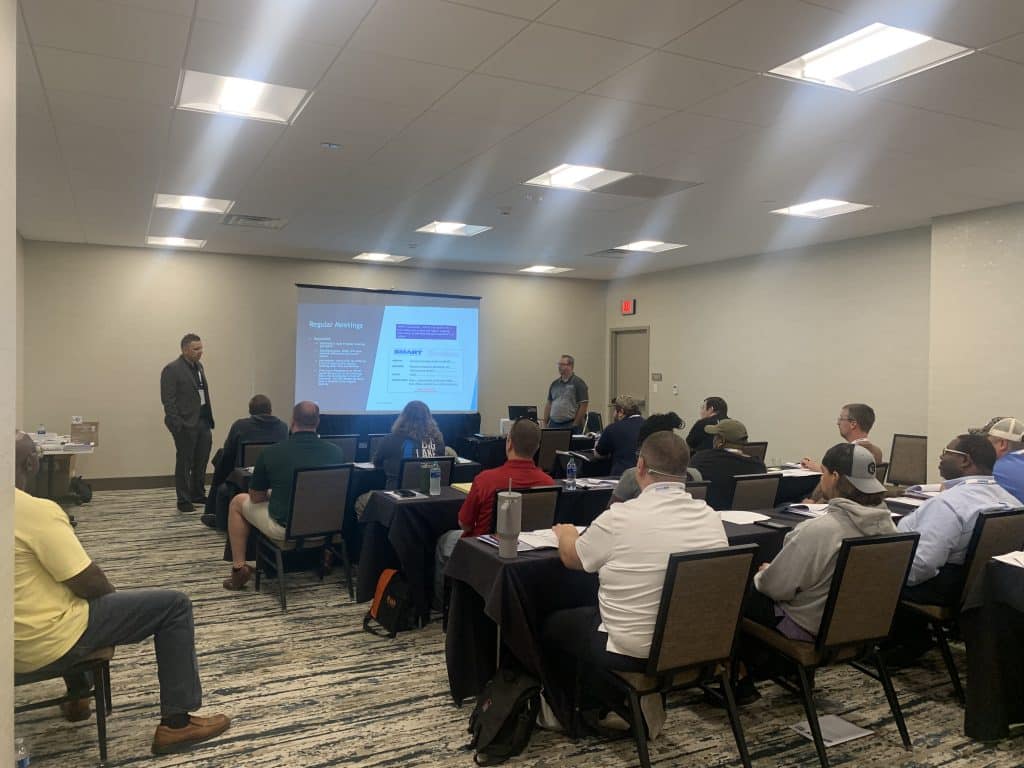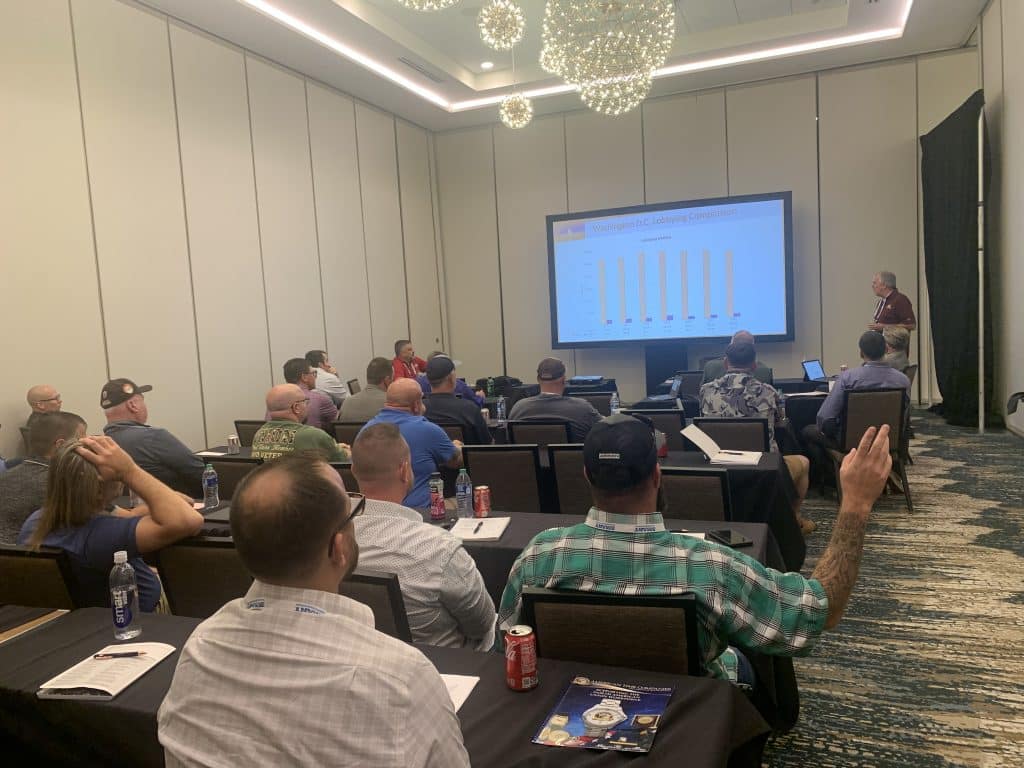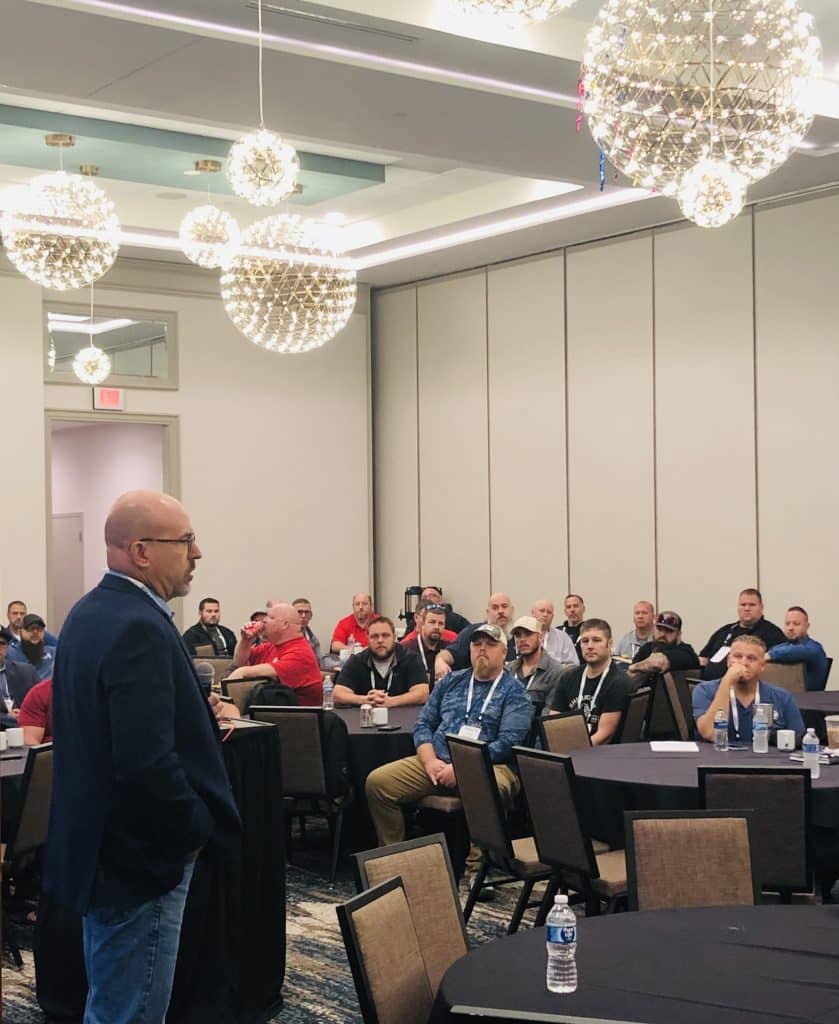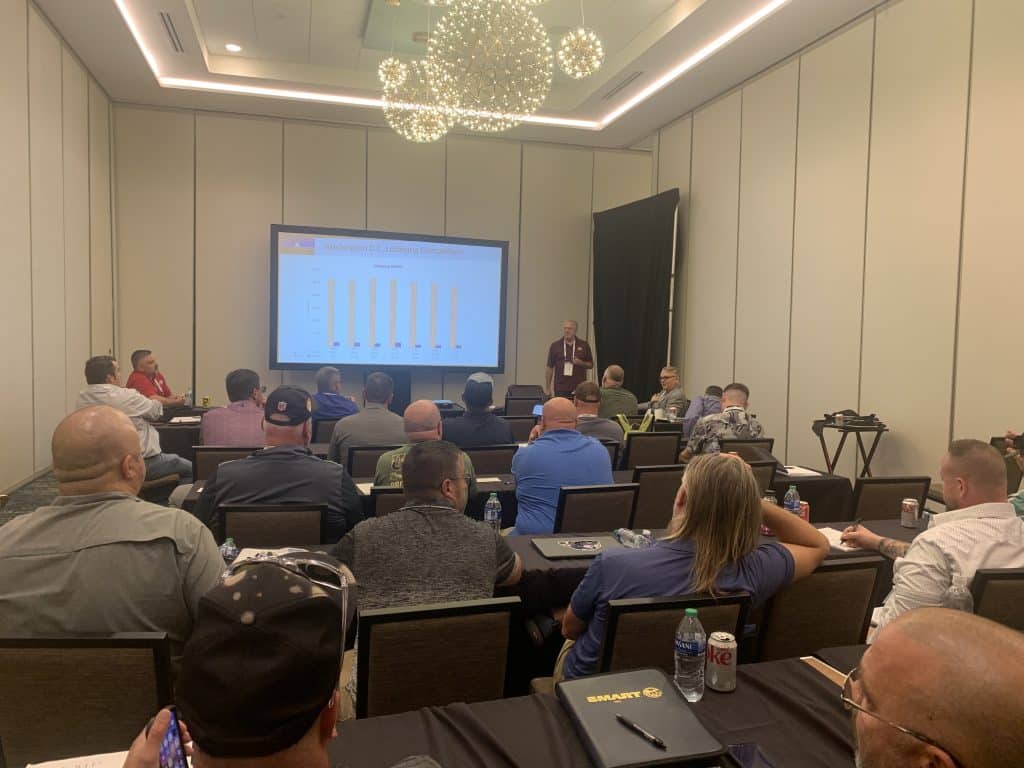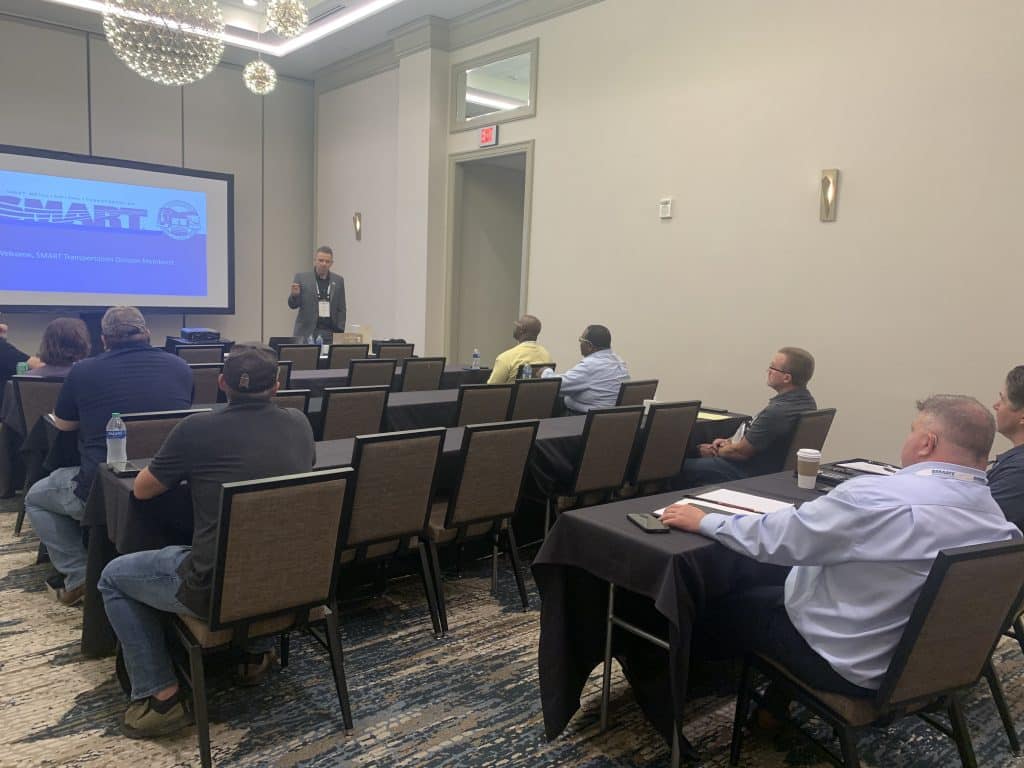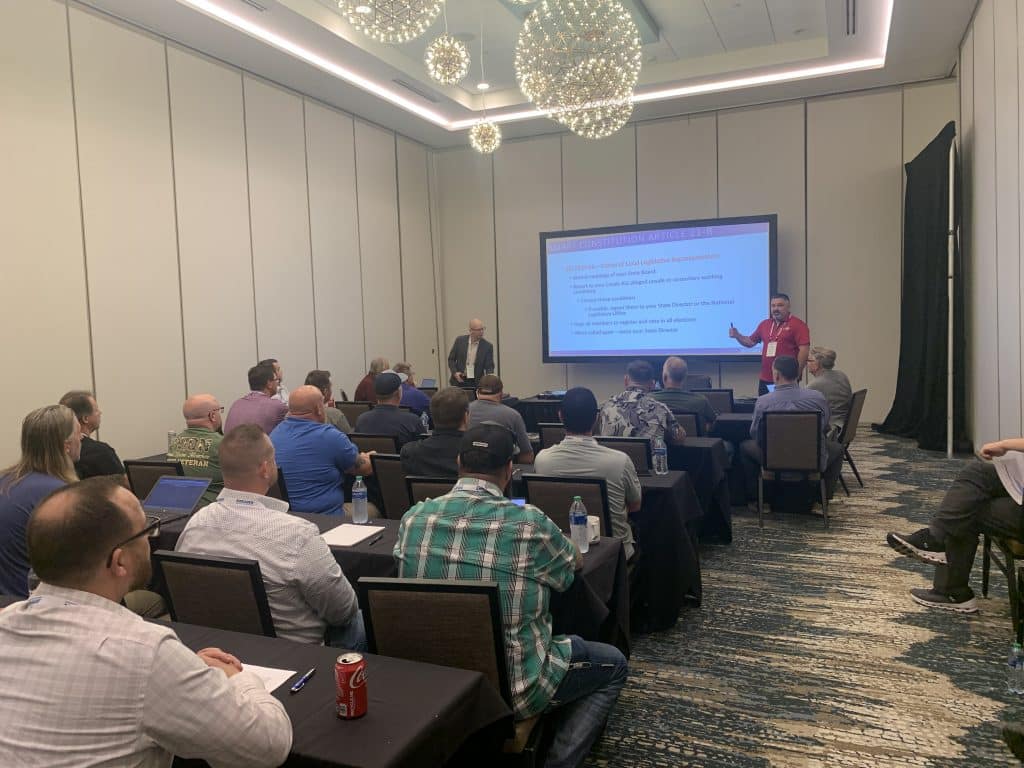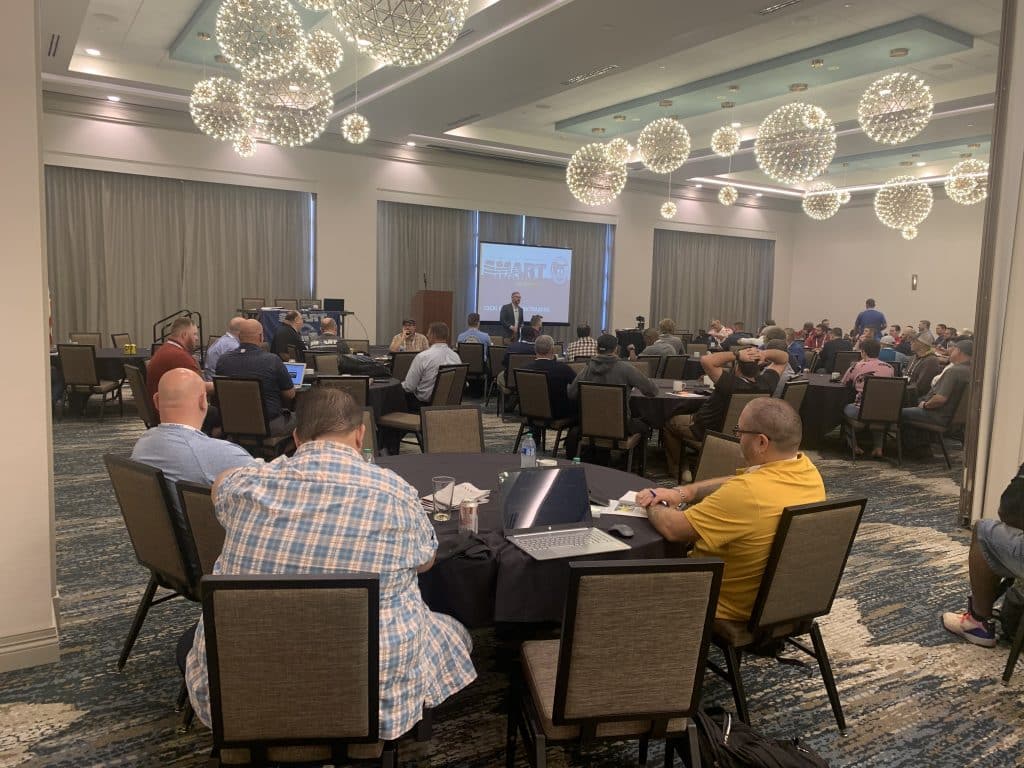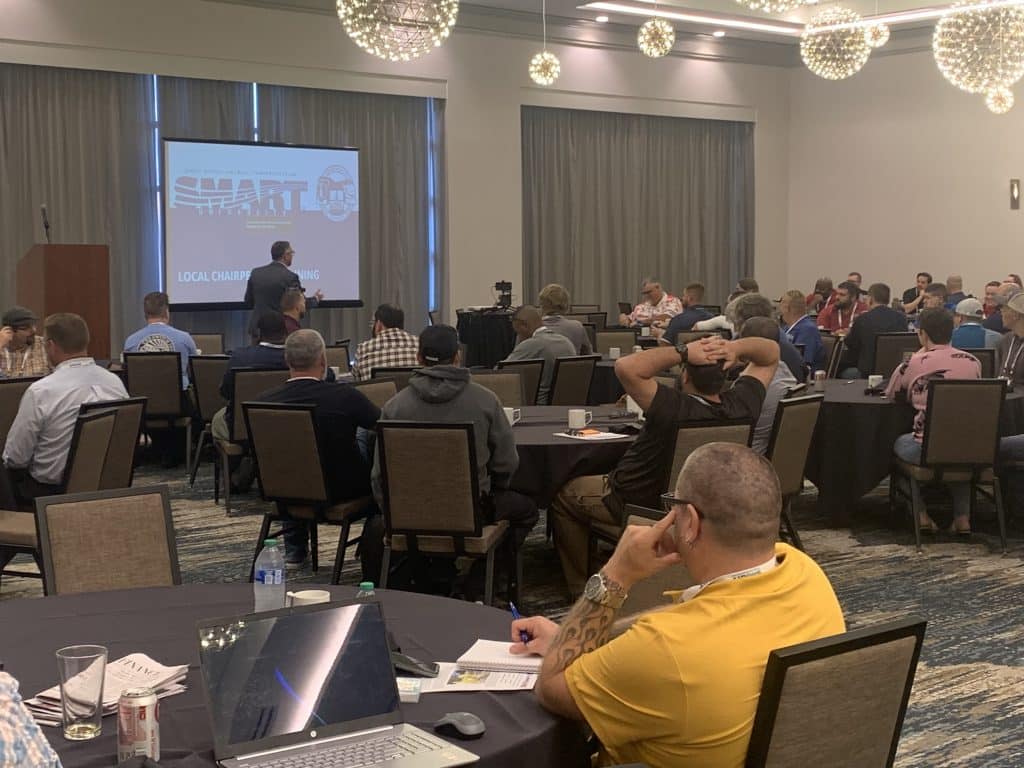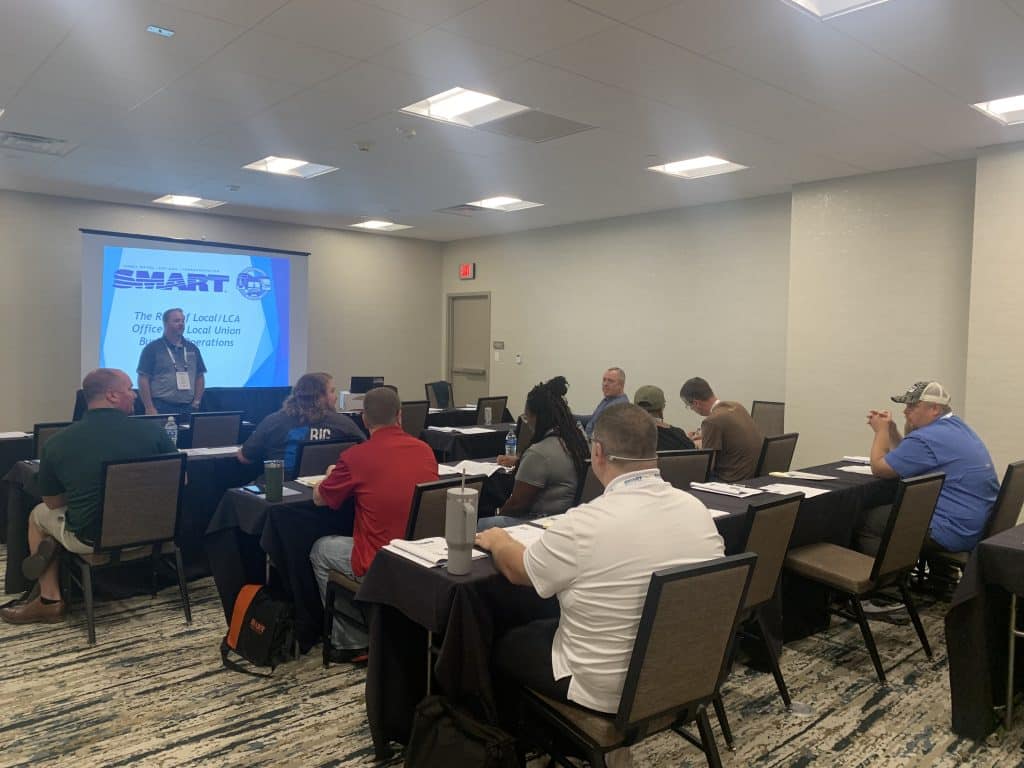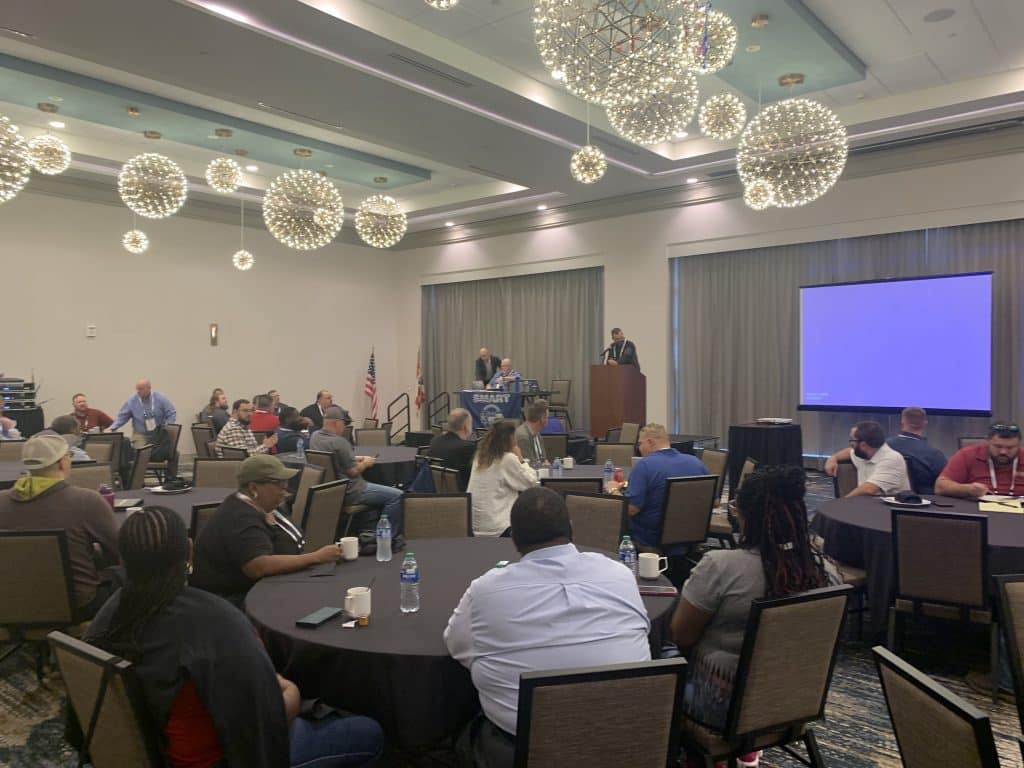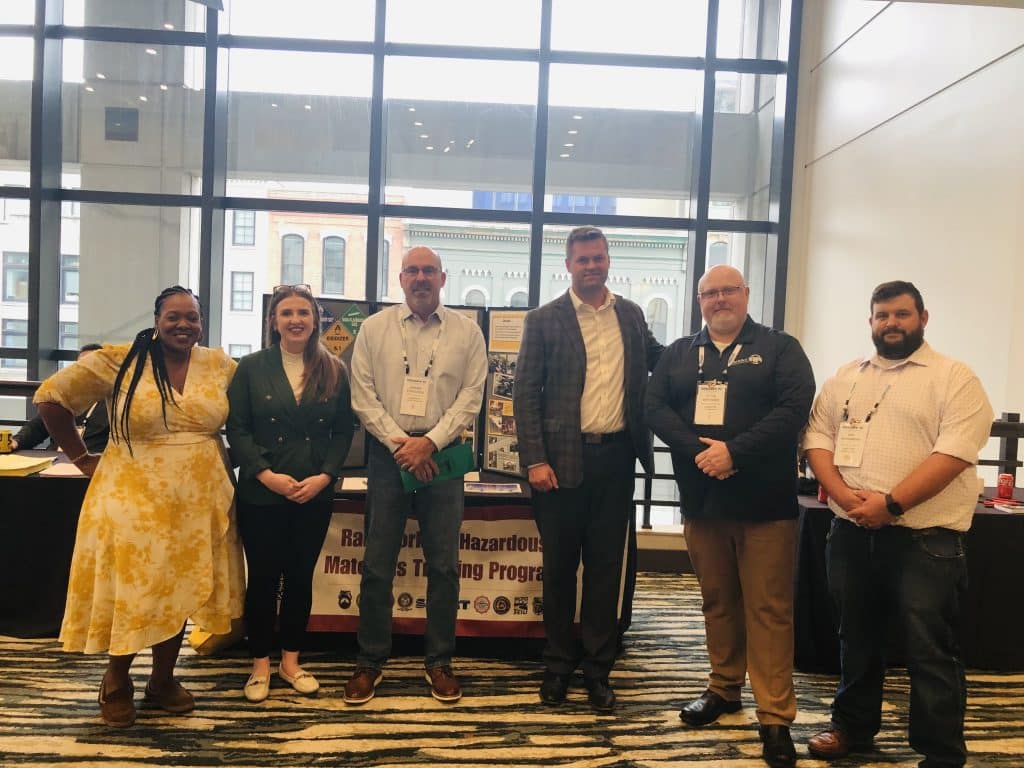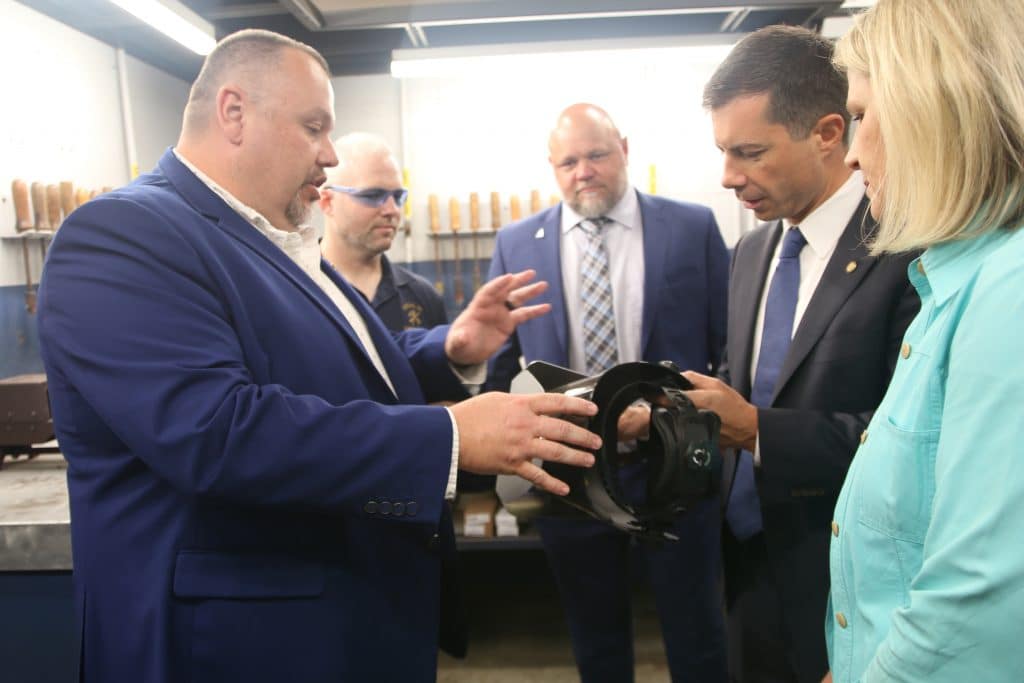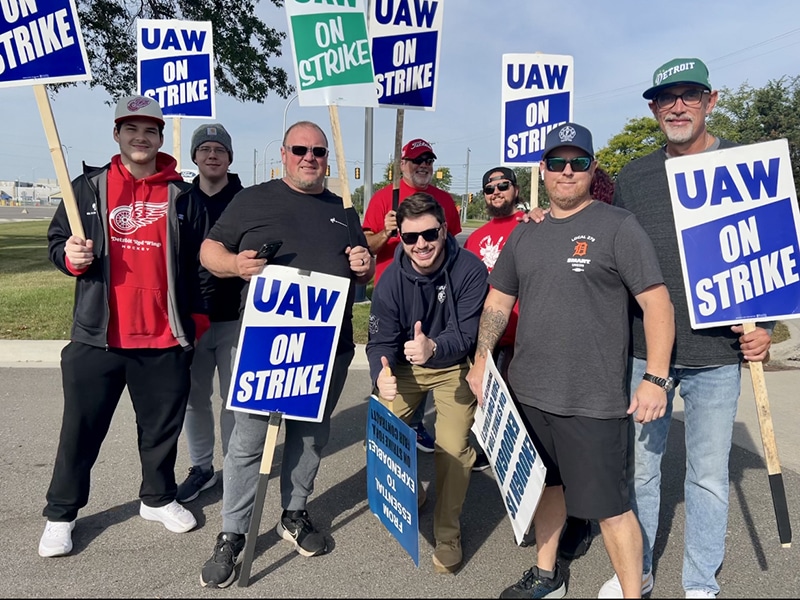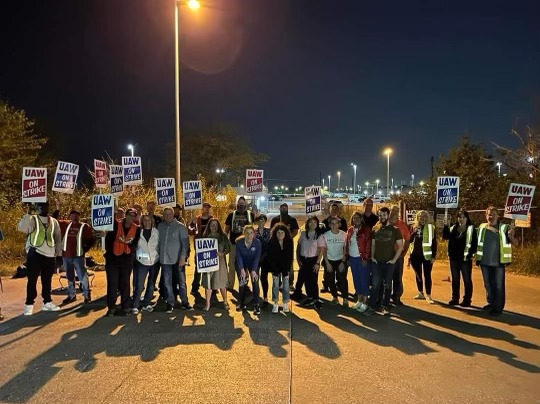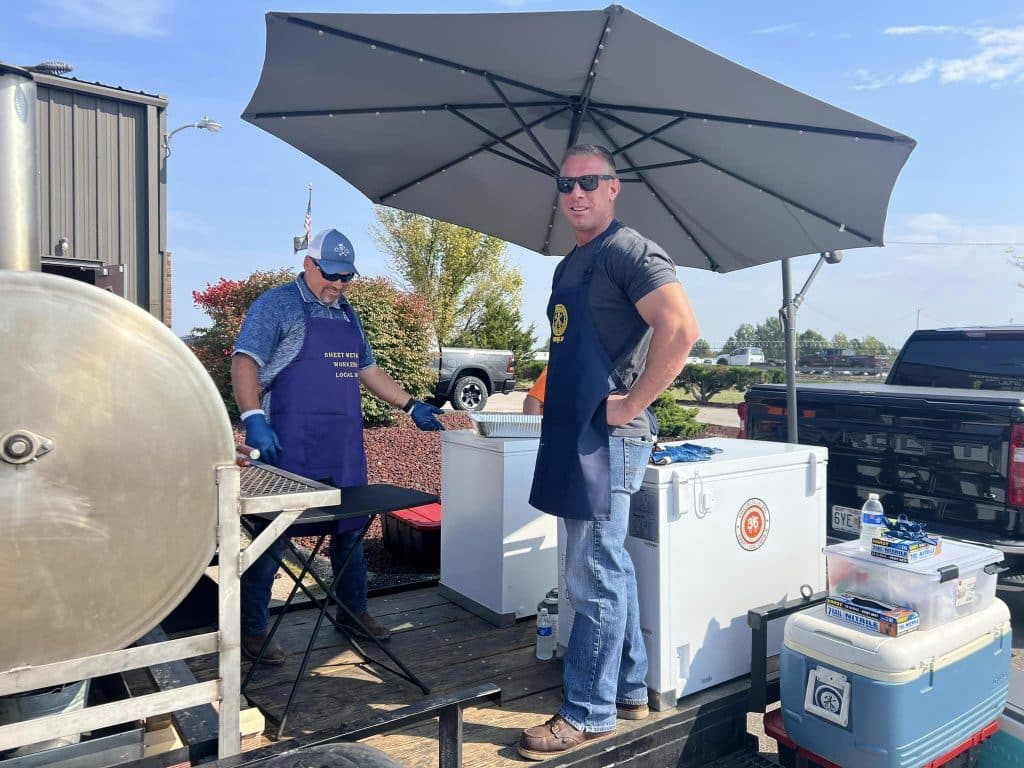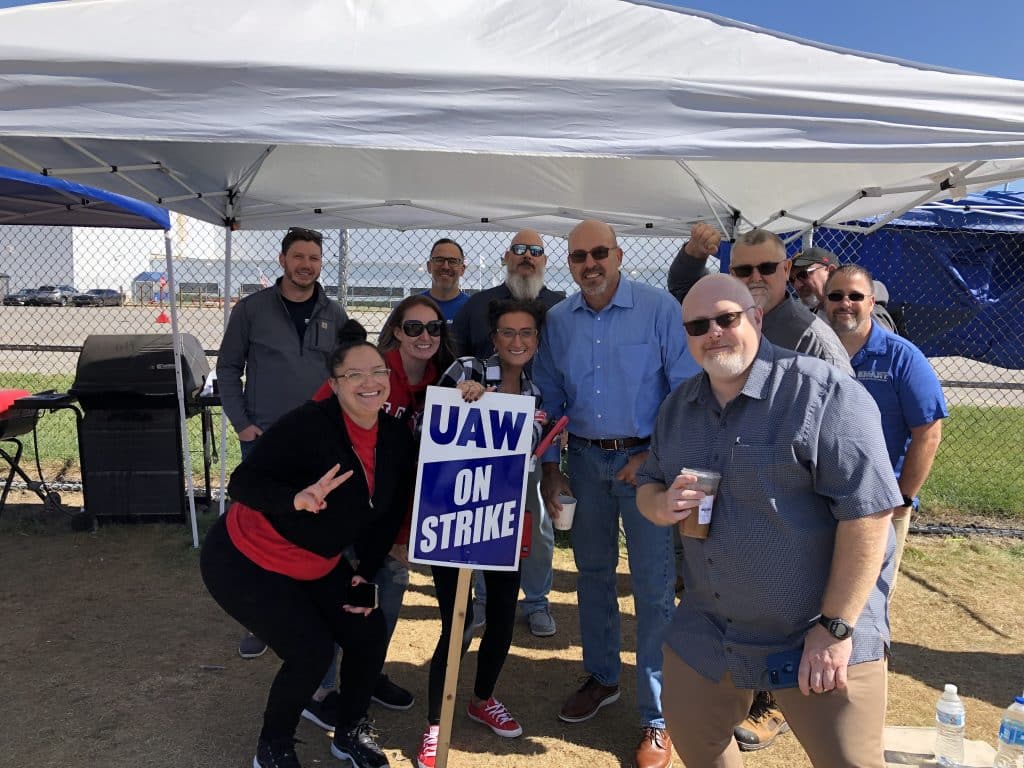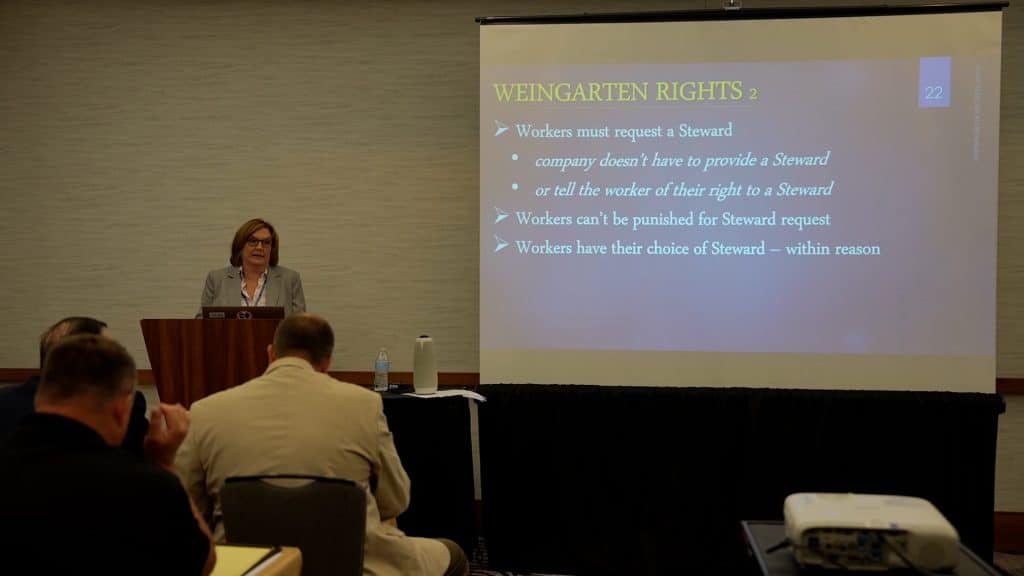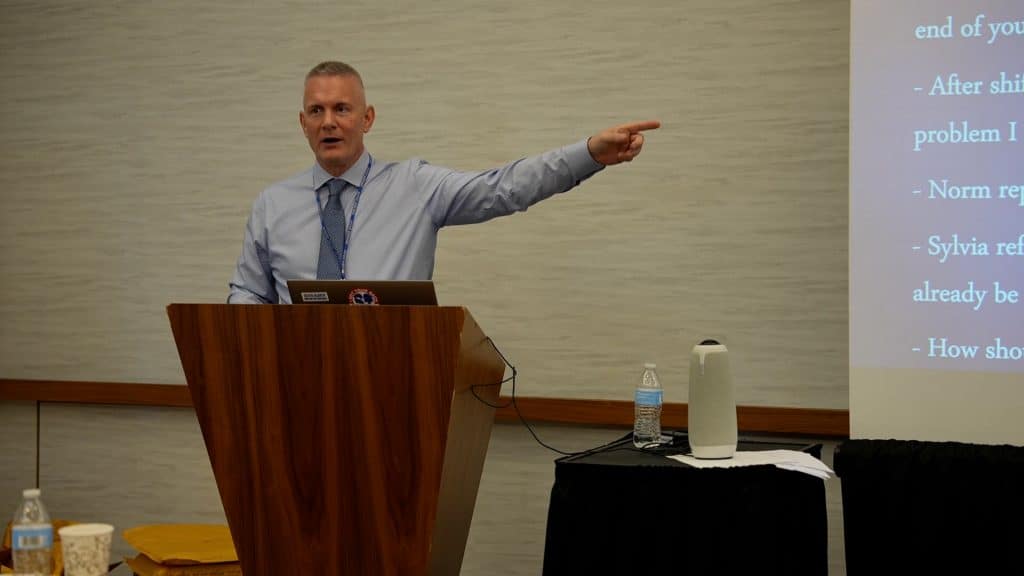For father-daughter sheet metal workers Anthony Smith and Amber Jones, joining SMART Local 4 (Memphis, Tennessee) and working for signatory contractor Ventcon has demonstrated the difference between a nonunion gig and a union career.
“Before I joined the union, I didn’t think I’d ever really be able to retire — I’ve always bartended, served, didn’t have anything going into retirement,” said Jones, a first-year apprentice. “Here with the local, I’m able to retire one day. I’m actually able to pay my bills, financially afford to feed my kids and, you know, moving up in life.”
“I’ve been in the trade off and on for about 30 years,” added Smith, a Marine Corps veteran and a member of Local 4 since August 2023. “I was always told that being unionized was something I would not want to consider, but everything that I’d heard about Local 4 — and of course, experiencing it now — I wish I would’ve [joined] a long time ago. … With the way the local treats you, the way everybody here treats you, it just gives you a better opportunity to move forward.”
Both Smith and Jones are currently at work fabricating metal for Ford’s massive Blue Oval City electric vehicle plant in Stanton, Tennessee. For the country at-large, their jobs are helping to build our sustainable economic and clean energy future. For the two Local 4 sheet metal workers, it’s an extraordinary amount of fabrication work.
“It’s great work. It’s not easy work, but it’s good, honest work — you make good pay,” Smith said.
“[Ford Blue Oval City] is needing a ton of metal, which we are constantly pushing out — truck loads a day,” Jones explained. “I love the people that I work with; I enjoy coming to work every day.”
The work is one thing, but the benefits of union membership go beyond just material gains. For Jones, the union apprenticeship program has helped nurture a love of learning in a trade that has endless possibilities.
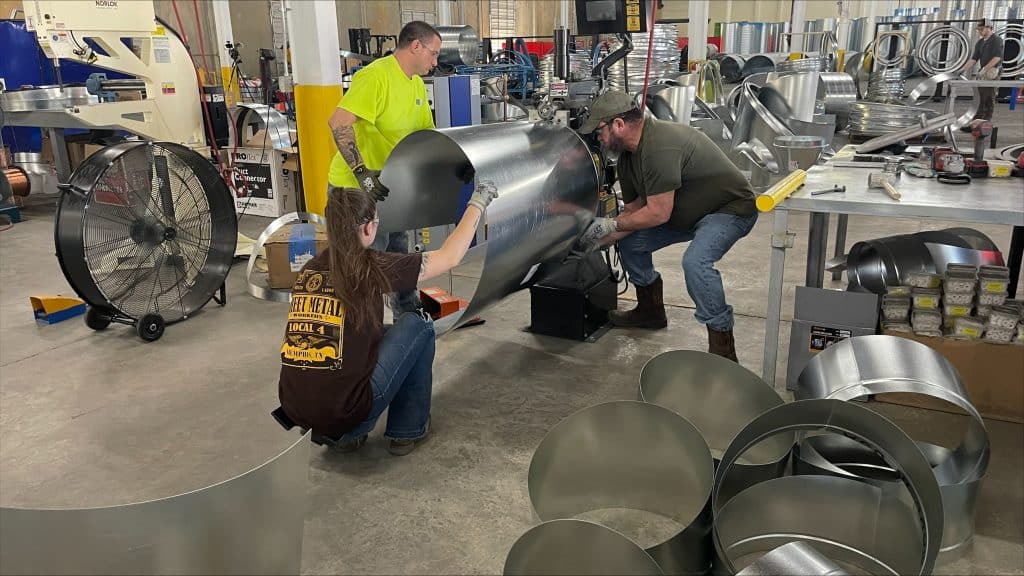
“I like to stay busy; I like to learn new things, being able to understand how things work,” she said. “I go to school every Monday and Tuesday night. It’s very welcoming; they’ve been there for me, helped guide me, they’re teaching me everything that I need to know.”
Smith, meanwhile, said the sense of camaraderie parallels what he had in the Marines.
“Everybody helps each other, you know. We don’t just finish a job that we’re on and stand around, and watch everybody else maybe struggle,” he said. “Everybody pulls together to get the job done. It’s a great team that works out here, and it’s probably the best atmosphere I’ve been in in a very, very long time.”
